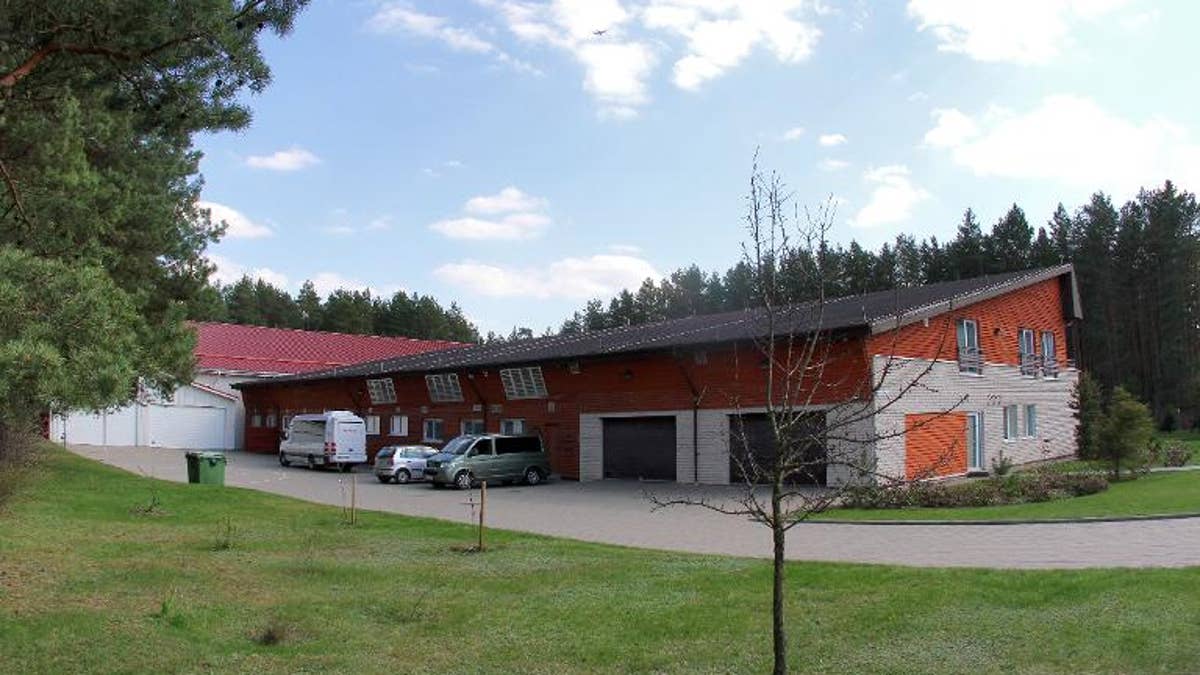
A picture taken on April 26, 2012 shows a training center of the Lithuanian State Security Department, the country's domestic intelligence agency, in Antaviliai near Vilnius. Rights groups claim it was used as a CIA "black site." (AFP)
Vilnius (AFP) – Human rights group Redress said Thursday it has lodged a complaint with Lithuanian prosecutors for a Saudi terror suspect it says was held in a secret CIA jail in the Baltic state.
The London-based group filed the complaint on behalf of 45-year-old Mustafa al-Hawsawi, who faces the death penalty for his alleged involvement in the September 11, 2001 attacks on the United States.
"We have concluded that it is highly likely that Mr. al-Hawsawi was held here in Lithuania for a period between March 2004 and September 2006," Redress lawyer Sarah Fulton told reporters in Vilnius.
She said activists analysed flight data, transfers of other suspects and information about other alleged US Central Intelligence Agency (CIA) secret prisons or "black sites".
The complaint, lodged on September 13, requests a probe into "the involvement of Lithuanian officials and government bodies in the extraordinary rendition, secret detention, and torture and ill-treatment of Mr Mustafa al-Hawsawi."
The Lithuanian prosecutor's office is currently reviewing it, spokeswoman Rita Stundiene told AFP.
Amnesty International's counter-terrorism expert Julia Hall said Lithuania, which holds the EU's half-year rotating presidency, must use its current role to set "the example and honour Europe's promise to protect human rights and uphold the rule of law".
"Just because the US has shielded itself from accountability does not mean that Lithuania should follow suit," she said at the same press conference.
Al-Hawsawi is the second terror suspect alleged to have been illegally held in Lithuania, after top Al-Qaeda operative Abu Zubaydah.
Zubaydah, who US officials believe ranks third in Al-Qaeda's hierarchy, launched a case with the European Court of Human Rights in 2011.
In 2009, a Lithuanian parliamentary enquiry identified two sites that may have been used as CIA black sites in the Baltic nation.
Records show that two CIA-linked flights landed in Vilnius and three others landed in the western town of Palanga between 2003 and 2006. But the parliamentary group said it was impossible to say if detainees were brought in.
Prosecutors launched a probe but dropped it in 2011 citing insufficient evidence and a statute of limitations.
The Council of Europe has claimed other secret prisons were also set up in Romania and Poland.
